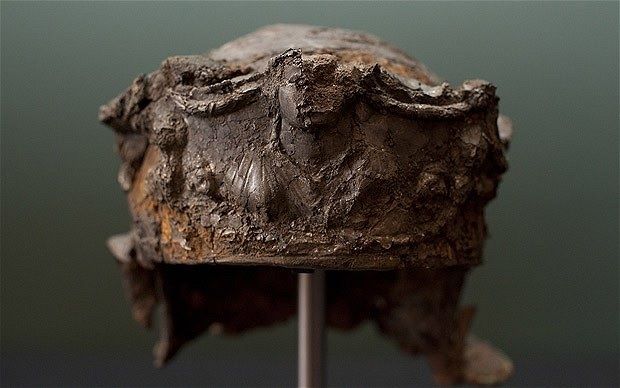Post by UKarchaeology on Jul 13, 2015 19:55:20 GMT

What has been hailed as one of the most significant recent UK Iron Age finds is going on display after a nine-year conservation project.
The decorated Roman cavalry helmet was discovered at a site in Leicestershire.
Experts said its date, close to the Roman invasion of 43 AD, meant it could be evidence of Celtic tribes serving with the Roman army.
The artefact, which was found in fragments, has been restored by a team at the British Museum.
Dr Jeremy Hill, from the museum, said: "You can't underestimate the shock and surprise this had when it was first found - Hallaton really transforms our understanding of the Roman conquest of Britain."
He added: "Even if it went into the ground in 43, 44, 45AD, that is changing what we normally think is happening in the Roman conquest.
"We normally think of the Roman conquest of Britain as Romans versus us. Here you probably have a situation where local Britons are fighting on the Roman side."
Originally discovered by amateur archaeologists in 2000, the site at Hallaton has yielded more than 5,000 coins, silver ingots and numerous ritual deposits.
The helmet was found with hundreds of coins and a large quantity of pig bones.
Such was its fragile state that the entire block of soil was lifted and sent to the British Museum so it could be excavated under laboratory conditions.
Marilyn Hockey, Head of Ceramics, Glass and Metals Conservation at the British Museum, said: "This was one of the most challenging and rewarding projects of my career.
"It has been a long job, and I have come to know this object intimately.
"But I have felt enormously privileged to have had the chance to work on such a unique and fascinating piece of our history."
The helmet was found to be made of iron, then covered in silver sheet and decorated in places with gold leaf.
Lavish decoration includes the bust of a woman, a laurel wreath and a mounted figure, possibly an emperor.
The Hallaton Helmet will be displayed permanently at Harborough Museum, in Market Harborough, Leicestershire, from 28 January alongside the other finds from the site.
(source & video at: www.bbc.co.uk/news/uk-england-leicestershire-16475224
